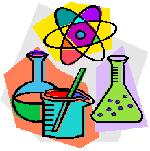|
A high-quality science education provides the foundations for understanding the world through the specific disciplines of biology, chemistry and physics. Sciences has changed our lives and is vital to the world’s future prosperity, and all pupils should be taught essential aspects of the knowledge, methods, processes and uses of science. Through building up a body of key foundational knowledge and concepts, pupils should be encouraged to recognise the power of rational explanation and develops a sense of excitement and curiosity about natural phenomena. They should be encouraged to understand how science can be used to explain what is occurring, predict how things will behave, and analyse causes.
|
 |
|
School Curriculum for Science
Our teaching of Science and the expectations we have of children are underpinned by the National Curriculum Programme of Study for Science.
In each year group, children will be taught:
- scientific knowledge and conceptual understanding through the disciplines of biology, chemistry and physics
- to develop an understanding of scientific processes and methods, including enquiries and investigations
- to understand the uses and implications of science, today and for the future
The above are taught through discrete science sessions, which usually relate to a topic, theme or unit of work from our SNAP Science curriculum. Science lessons may also involve visitors to school and visits to museums, including the Manchester Museum of Science and Industry (MOSI).
In Key Stage 1 (Years 1 and 2), the children will be taught:
- to work scientifically, asking simple questions, observing closely, performing simple tests and recording data
- about different types of plants and animals, including how they grow, their habitats and how they depend on each other and obtain food
- about everyday materials (wood, glass, plastic, paper, rock, etc.), their characteristics and their uses
- about the seasonal changes and how the seasons affect the weather and the length of day
In Key Stage 2 (Years 3 and 4), the children will be taught:
In Key Stage 2 (Years 5 and 6), the children will be taught:
The above are taught through discrete Science lessons and Science project work which usually relates to a topic or theme. In Key Stage 2 (Years 3 – 6), the children will be taught:
- to broaden their scientific view of the world around them
- explore, talk about, test and develop ideas about everyday phenomena
- to ask their own questions about what they observe and make some decisions about scientific enquiry, including observation, testing, grouping, classifying and using secondary cources of information
- to plan and carry out scientific enquiries and tests, using a range of methods and equipment
- to take measurements with increasing accuracy and precision, including repeat readings
- to use test results to make predictions
- to draw conclusions and use scientific language to talk about and write about what they have found out
- to gather, record, classify and present data in a variety of ways – charts, tables, diagrams
- about plants, including the functions of their parts, how they grow, how they transport water and how they reproduce
- about animals, including nutrition, body structure and movement, the human digestive system and teeth, changes of age
- more about humans, including the circulatory system, the impact of diet, exercise and drugs and the transport of nutrients and water in the body
- about evolution and inheritance – how living things change over time and adapt to their environment
- about rocks, their physical properties and how fossils are formed
- about the states of matter – solds, liquids and gases, including evaporation and condensation in the water cycle
- about how materials change, including forming solutions, separating materials (filtering, sieving, evaporation) and reversible and irreversible (permanent) changes
- about light, reflection and shadows, how light travels (in straight lines) and light sources
- about sound as a vibration, how sound travels from source to ear, pitch and volume
- about forces, including magnets, gravity, air resistance, water resistance and friction; forces in levers, pulleys and gears
- about electricity – appliances; electrical circuits and their parts; conductors and insulators; how circuits function, including the effects of changing voltage applied to the a circuit
- about Earth and Space – the movement of the Earth and other planets relative to the sun; the movement of the moon; the Earth’s rotation to explain day and night
|

